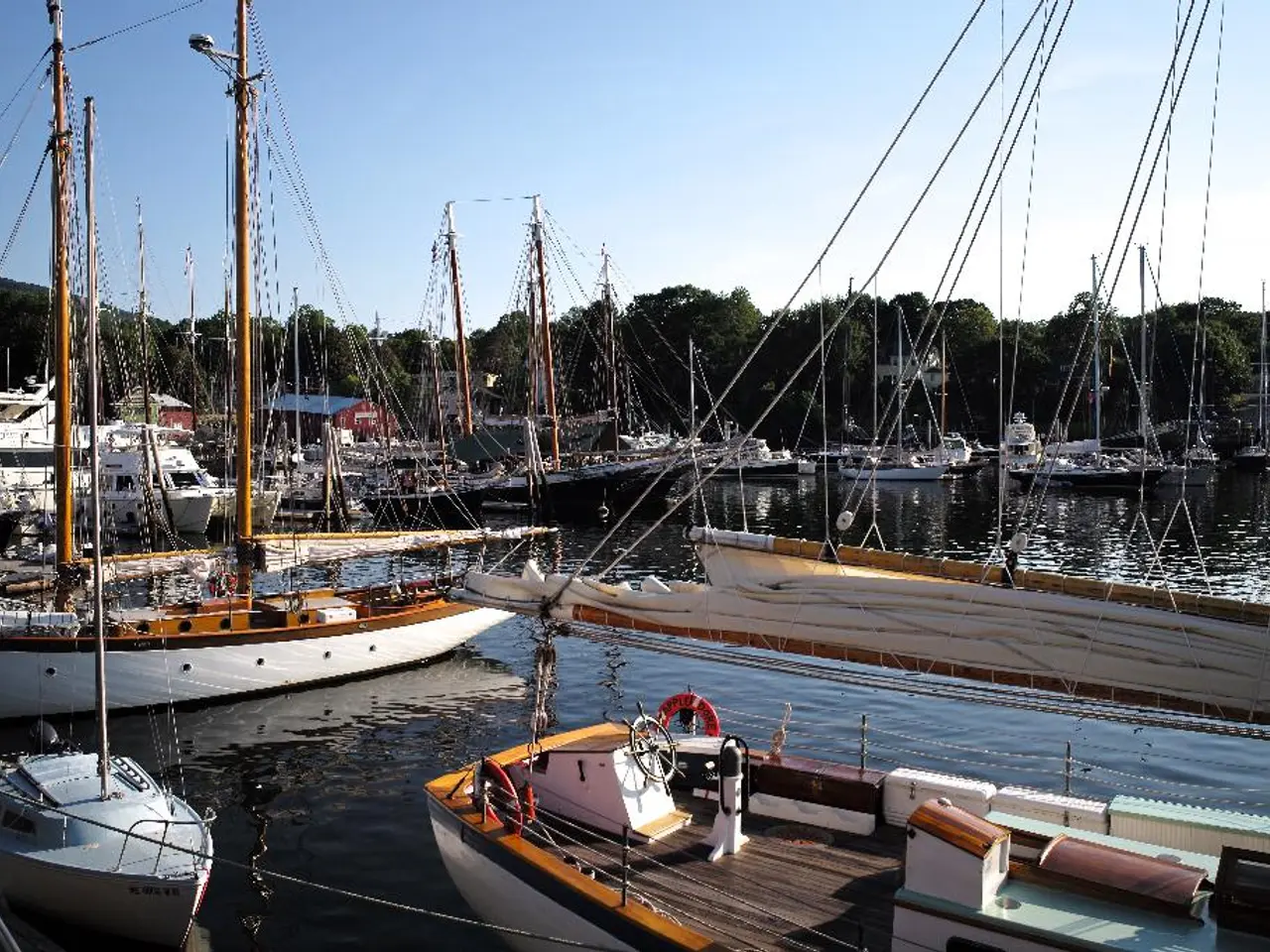Outdated Tugboats Lead to City Conundrums - Issues with Outdated Pruned Vegetation in Certain Urban Areas
In recent years, several incidents involving derelict trawlers have raised concerns in German ports. The most recent case was the dismantling of the "Nordland III" on land near the Greifswald lock in July of this year due to sinking.
In Stralsund, authorities had to secure a sales trawler in the past five years to prevent potential incidents and associated environmental risks. Rostock harbour captain Falk Zachau stated that there has been an increase in such incidents over the past five years, with the 70-ton trawler "Wernigerode" sinking and needing to be raised in Rostock in 2021. Greifswald has also faced two trawler sinkings in recent years: the "Johanna" in 2020 and the "Nordland III" in October 2023.
The high costs and lack of suitable areas make it hardly an option for owners to simply run a ship aground and secure it. The city of Greifswald has already spent a six-figure sum on salvage for the "Nordland III". The city and state were in dispute over jurisdiction, and the Ministry of Environment in Schwerin estimates the costs of removal for the "Nordland III" at around 500,000 euros.
However, the issue of derelict ships—including trawlers—is typically governed by laws on waste management, ship recycling, and port authority regulations. German ports, managed by local harbor authorities, have certain powers to address abandoned or sunken vessels, often in coordination with environmental and maritime safety agencies.
Under the EU Ship Recycling Regulation, Germany aims to ensure ships are dismantled in an environmentally sound manner. This regulation restricts the abandonment of derelict vessels in ports to prevent pollution and navigational hazards. German port authorities typically have the power to demand removal or initiate removal of abandoned, derelict, or sunken ships within their jurisdiction to maintain safe navigation, port operations, and environmental protection. They may impose fines or order salvage operations if owners fail to act.
Derelict trawlers can become problematic due to high costs of removal, unclear ownership, and limited recycling options. Increased numbers may strain port resources and require legislative or policy updates. Stephan Berger, then chairman of the Association of German Harbor Captains (VDHK), drew attention to the lack of facilities for scrapping ships last year.
In an effort to address these challenges, the state harbor ordinance is currently being revised, which may include a possible clarification of the powers of the harbor authorities. To find the most up-to-date information on emerging problems with derelict trawlers in German ports, or specific new legal moves, it is advisable to consult the German Federal Ministry of Transport and Digital Infrastructure for current ship recycling regulations, relevant port authority websites for Hamburg, Bremerhaven, or other German ports for local enforcement policies, EU regulations on ship recycling and waste management directives, and maritime environmental standards regarding abandoned vessels.
- The increase in derelict trawlers in German ports, such as the recent case of the "Nordland III," is a concern due to the associated environmental risks and high costs of removal, particularly because of the lack of suitable areas for such disposal.
- To address these challenges and prevent further incidents, environmental science and policy discussions, like the current revision of the state harbor ordinance, may help clarify the powers of harbor authorities and ensure derelict trawlers are handled in an environmentally sound manner.
- Stakeholders involved in addressing the issue of derelict trawlers in German ports should consider scientific research on climate-change and environmental-science, as well as lifestyle choices and outdoor-living to minimize the impact on home-and-garden environments and promote sustainable home-living.




